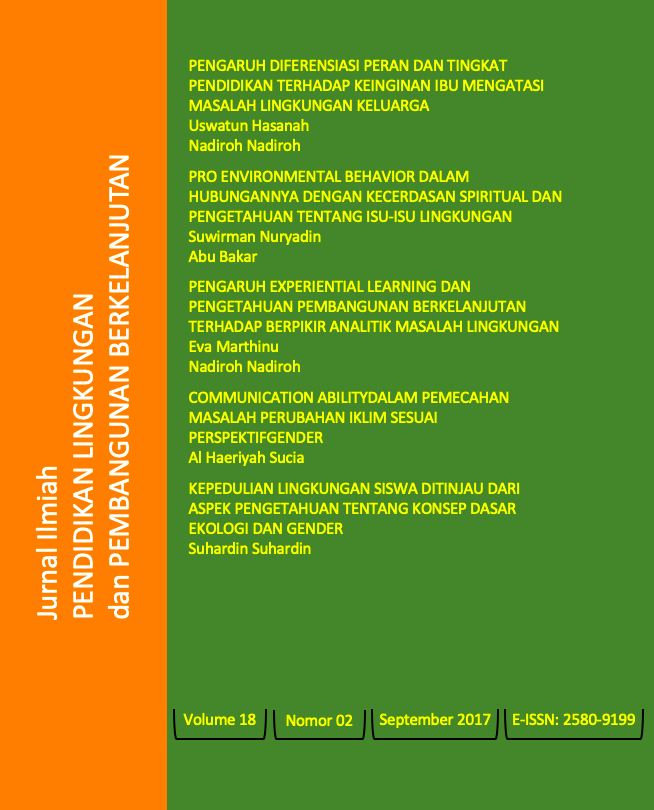PENGARUH EXPERIENTIAL LEARNING DAN PENGETAHUAN PEMBANGUNAN BERKELANJUTAN TERHADAP BERPIKIR ANALITIK MASALAH LINGKUNGAN
DOI:
https://doi.org/10.21009/PLPB.182.03Keywords:
experiential learning strategy, sustainable development, analytical thinking ability, environmental issuesAbstract
This study aims at investigating effects of experiential learning strategy and knowledge of sustainable development concept toward students’ analytical thinking ability about environmental issues. An experimental method with 2x2 factorial design was employed in this quantitative study which was conducted at SMA Negeri 3 Ternate. Samples of the study were 52 students of grade IX of Social Sciences selected by means of random sampling. Data analysis shows that: 1. In general, students using experiential learning strategy with outdoor approach have higher average score on analytical thinking ability about environmental issues than those with indoor approach, 2. Students having high knowledge level in sustainable development concept and using outdoor approach have higher average score on analytical thinking ability about environmental issues than those with indoor approach, 3. Students having low knowledge level in sustainable development concept and using indoor approach have higher average score on analytical thinking ability about environmental issues than those with outdoor approach, 4. There are significant interaction effects between experiential learning strategy and knowledge of sustainable development concept toward students analytical thinking ability about environmental issues.








